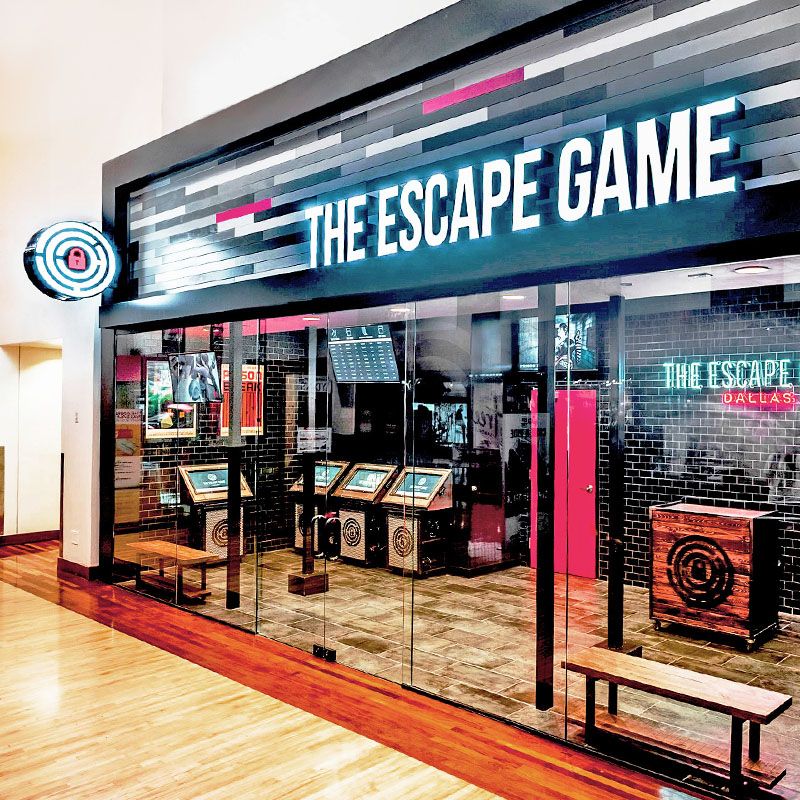Escape Room Minneapolis Mall of America-- Immersive and Fun
Escape Room Minneapolis Mall of America-- Immersive and Fun
Blog Article
Group Techniques: Just How to Collaborate Efficiently in a Retreat Area
Navigating the intricacies of a retreat room demands more than plain interest; it calls for a well-coordinated technique based in clear interaction, strategic duty tasks, and proficient time management. Groups need to actively pay attention to each member's understandings, assign duties that align with specific strengths, and preserve regular check-ins to make sure emphasis and prevent redundancy. By promoting an atmosphere that values cohesion and flexibility, groups can significantly increase their performance and success rates. The subtleties of these approaches can change the experience, however just how precisely can they be executed to maximize the capacity for success?
Establish Clear Communication

To help with clear interaction, it is necessary to mark a main point of get in touch with for details dissemination. This function entails summarizing searchings for and suggested strategies to ensure everyone continues to be on the exact same page. In addition, adopting a systematic method to discussions can protect against disorderly exchanges. Brief, focused updates from each group participant can maintain the team educated without overwhelming them with information - best escape room.

Designate Duties Tactically
While clear interaction sets the foundation for efficient team effort, designating roles strategically ensures that each staff member's strengths are made use of successfully. In a getaway space circumstance, the time-sensitive and complicated nature of difficulties necessitates an efficient method to task delegation. By determining and leveraging private competencies, teams can optimize their analytic capabilities and boost overall performance.
First, assess the special skills and qualities of each individual. Somebody with an eager eye for information may excel in locating covert items, while a rational thinker could be much better suited to addressing problems. It's just as vital to have a leader who can look after progress, handle the timeline, and make crucial phone calls when essential. This role typically needs solid business and social skills.
2nd, guarantee that duties are versatile and adaptable. As new challenges emerge, the group should have the ability to pivot, reapportioning tasks as called for. This flexibility helps keep momentum and stops bottlenecks that can happen because of rigid function projects.
Inevitably, a tactical technique to role job not just optimizes the toughness of each employee but also cultivates a cohesive environment, driving the group towards an effective retreat.
Utilize Diverse Skills
Recognizing and utilizing the diverse abilities within your team can dramatically boost your performance in an escape space. Each staff member brings special staminas to the table, and efficiently leveraging these abilities can expedite analytical and boost general effectiveness. A team participant with strong analytical skills could stand out at analyzing complicated codes or patterns, while one more with keen observational abilities may rapidly identify hidden ideas that others might ignore.
Reliable interaction is key to utilizing these diverse skills. Motivate staff member to articulate their insights and concepts quickly, making certain that all possible solutions are considered. This comprehensive strategy fosters a vibrant setting where imagination and vital thinking can flourish. Additionally, appointing jobs that align with each member's strengths can avoid traffic jams and ensure that progress is continual.
Furthermore, diversity in abilities often converts to variety in assuming designs, which is invaluable in an escape room setting. While some challenges may call for rational thinking and accuracy, others could gain from creative and lateral thinking. By acknowledging and leveraging this diversity, groups can deal with a more comprehensive series of challenges better, consequently increasing their chances of a successful retreat.
Manage Time Efficiently

First, allocate preliminary minutes for a fast survey of the space. Recognize noticeable problems and split jobs based upon team participants' toughness, guaranteeing that no one is still. Set inner time checkpoints to examine development regularly; as an example, purpose to have half the puzzles fixed by the mid-point of the video useful content game. This method can assist maintain the team focused and stop time from slipping away undetected.
In addition, prevent one-track mind. If a problem is taking too long, revolve group members or go on to one more difficulty, returning later on with fresh viewpoints. Communication is extremely important-- keep everyone updated on addressed puzzles and continuing to be jobs have a peek at these guys to avoid repetitive initiatives.
Finally, use any kind of tips or ideas sparingly yet purposefully - best escape room. Recognizing when to ask for assistance can conserve useful time. By adhering to these time administration principles, teams can substantially enhance their opportunities of a successful and delightful getaway space experience
Debrief and Show
Representation is an essential aspect of team growth and enhancement in the context of escape rooms. Once the difficulty is completed, whether efficiently or not, it is essential for the group to participate in an organized debriefing session. This procedure permits employee to analyze their performance, determine staminas, and determine areas for enhancement.
Start the debrief by discussing what went well. Highlight details instances of efficient communication, problem-solving, and cooperation. Identifying these favorable actions strengthens them and urges their rep in future obstacles.
Review minutes of complication, miscommunication, or ineffective approaches. Motivate an open and positive dialogue where team participants can share their perspectives without fear of criticism.
Conclusion
In verdict, successful partnership in a retreat area is asserted upon clear communication, critical duty assignments, the reliable usage of diverse skills, and skilled time management. By producing a natural and adaptive team setting, the possibility of effectively addressing problems and attaining the purpose of getting away the room is significantly boosted.
Report this page